“Top Picks: Unraveling the Best Senior Dog Food for Optimal Health”
## Introduction to healthiest Dog Food for senior dogs ##
Welcome to the journey of uncovering the best nutrition for our beloved senior canine companions! As our furry friends enter their golden years, providing them with the healthiest dog food becomes paramount to ensure their well-being and vitality. So, what is the healthiest dog food for senior dogs? Let’s embark on this quest together.
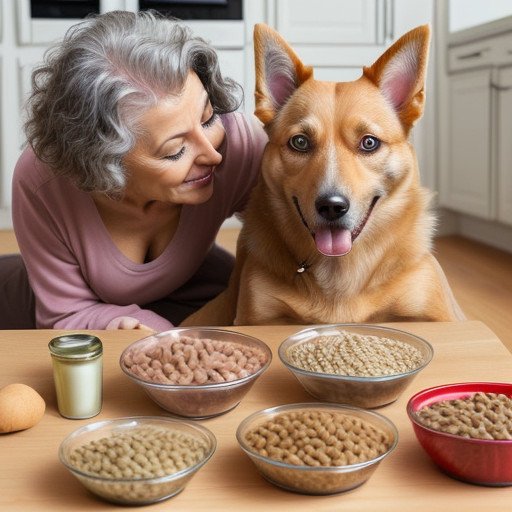
Table of contents
Imagine your senior dog wagging its tail with delight, feeling energetic and content as it enjoys meals tailored to its specific needs. Just like humans, senior dogs require special attention to their diet to maintain optimal health and vitality. With aging comes changes in metabolism, activity levels, and potential health issues, making nutrition a crucial aspect of their care.
In this exploration, we’ll navigate through the maze of dog food options, deciphering labels, and understanding ingredients to uncover the top picks for our furry companions. We’ll delve into the significance of protein, fats, vitamins, and minerals in senior dog diets, unraveling the secrets to longevity and well-being.

Join us as we demystify the world of senior dog nutrition, empowering you to make informed choices that will enhance your dog’s quality of life. Together, let’s ensure that our senior dogs thrive in their golden years, brimming with vitality, health, and happiness. Let’s embark on this journey to discover the healthiest dog food for our cherished senior companions!
##1 of 7 ## Understanding Senior Dog Nutrition :
Understanding senior dog nutrition is essential for ensuring our furry friends lead happy and healthy lives as they age gracefully. As our canine companions enter their golden years, their nutritional needs change, requiring special attention and care. So, what is the healthiest dog food for senior dogs ? Let’s break it down together.
1. Nutritional Needs of Senior Dogs:
Senior dogs often require diets rich in high-quality protein to support muscle health and maintain lean body mass. Adequate levels of fat provide essential energy, while fiber aids in digestion and helps prevent constipation, a common issue in older dogs.
2. Importance of Joint Health:
Many senior dogs experience joint stiffness and arthritis. Dog foods containing glucosamine and chondroitin sulfate can help support joint health and mobility, allowing our furry friends to move comfortably and enjoy their golden years to the fullest.
3. Managing Weight and Metabolism:
As dogs age, their metabolism slows down, making weight management crucial. Opting for dog foods with controlled calorie levels can help prevent obesity and maintain a healthy weight, reducing the risk of joint problems and other health issues.
Understanding these key aspects of senior dog nutrition empowers us to make informed choices when selecting the healthiest dog food for our aging companions. By prioritizing their nutritional needs, we can ensure our senior dogs thrive and enjoy a fulfilling life by our side.
## 2 of 7 ## Key Considerations When Choosing Senior Dog Food :
When it comes to choosing the best food for our senior pups, several key considerations can make a significant difference in their health and well-being. Let’s dive into these important factors to help you make the best choices for your furry friend’s diet.
1. Protein Content and Quality:
Opt for senior dog foods that contain high-quality protein sources such as chicken, turkey, or fish. Protein is vital for maintaining muscle mass and supporting overall health as dogs age.
2. Fat and Calorie Levels:
Senior dogs may need fewer calories to maintain a healthy weight and energy level. Look for dog foods with moderate levels of fat to support their energy needs without contributing to excess weight gain.
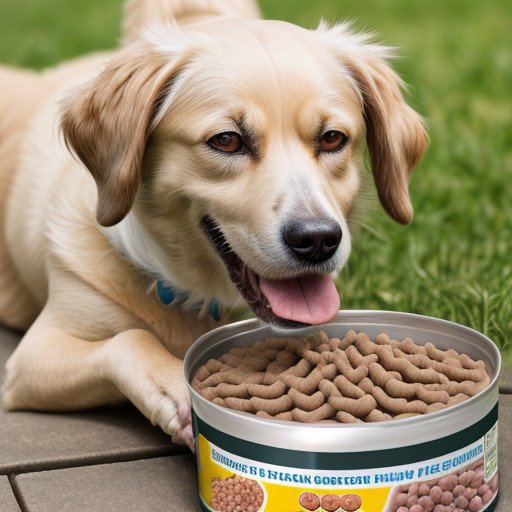
3. Essential Vitamins and Minerals:
Ensure that the dog food you choose is fortified with essential vitamins and minerals, including vitamins A, D, E, and B-complex vitamins, as well as minerals like calcium, phosphorus, and zinc. These nutrients are crucial for supporting various bodily functions and promoting overall health in senior dogs.
4. Special Dietary Needs:
Consider any specific health concerns or dietary restrictions your senior dog may have, such as joint issues or food sensitivities. Look for dog foods that address these needs, such as formulas designed for joint health or limited ingredient diets for sensitive stomachs.
By carefully considering these factors when choosing senior dog food, you can provide your furry friend with the nourishment they need to thrive in their golden years. Remember, selecting the healthiest dog food for senior dogs is a vital step in ensuring their continued health and happiness by your side.
## 3 of 7 ## Types of Senior Dog Food :
When it comes to catering to our senior dog’s nutritional needs, various types of dog food options are available to choose from. Let’s explore the unique types and what makes them suitable for our aging canine companions.
1. Dry Kibble Options:
Dry kibble is a popular and convenient choice for senior dogs. It provides essential nutrients in a crunchy texture that helps maintain dental health and satisfies their chewing instincts.
2 . Wet Canned Food Options:
Wet canned food offers senior dogs a softer texture and higher moisture content, which can be beneficial for those with dental issues or who require increased hydration.
3. Semi-Moist Dog Food:
Semi-moist dog food combines the convenience of dry kibble with the palatability of wet food. It’s often flavored and can be appealing to senior dogs with picky appetites.
4. Raw and Homemade Diets:
Some pet owners opt for raw or homemade diets for their senior dogs, believing that it offers fresher, less processed ingredients. However, it’s essential to ensure these diets are nutritionally balanced and safe for senior dogs.
By understanding the different types of senior dog food available, you can choose the option that best suits your dog’s preferences, dietary needs, and lifestyle. Remember, the healthiest dog food for senior dogs is one that provides balanced nutrition and supports their overall well-being as they age gracefully.
## 4 of 7 ## Ingredients to Look for in Senior Dog Food :
Choosing the healthiest dog food for our senior companions involves paying close attention to the ingredients list. Here are some key components to look for when selecting senior dog food:
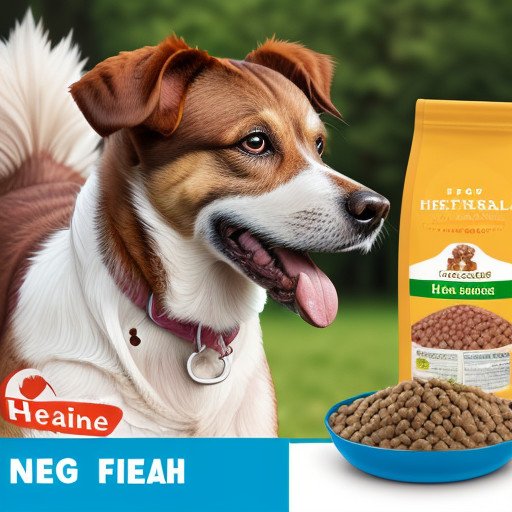
1. High-Quality Protein Sources:
Opt for senior dog foods that list real meat as the first ingredient, such as chicken, beef, or fish. Protein helps maintain muscle mass and supports overall health in aging dogs.
2. Healthy Fats and Oils:
Look for dog foods that contain sources of omega-3 and omega-6 fatty acids, such as fish oil or flaxseed oil. These essential fats support skin and coat health, joint function, and cognitive function in senior dogs.
3. Whole Grains and Carbohydrates :
Choose senior dog foods that include whole grains like brown rice, oats, or barley, as well as easily digestible carbohydrates like sweet potatoes or peas. These ingredients provide energy and fiber for digestive health.
4. Natural Preservatives and Additives:
Avoid dog foods that contain artificial preservatives, colors, or flavors. Instead, look for natural preservatives like mixed tocopherols (vitamin E) and natural flavorings derived from real ingredients.
By prioritizing these ingredients in senior dog food, you can provide your furry friend with the nourishment they need to thrive in their golden years. Remember, the healthiest dog food for senior dogs is one that contains high-quality ingredients that support their overall health and well-being.
## 5 of 7 ## Popular Brands and Product Recommendations :
Exploring popular brands and product recommendations can help you find the healthiest dog food for your senior companion. Here are some standout options to consider:
1. Blue Buffalo:
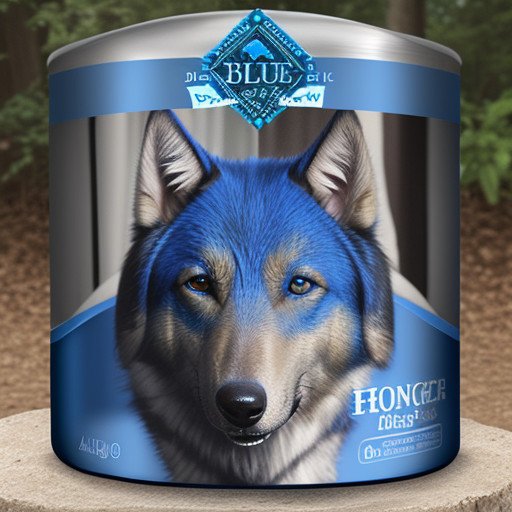
Known for its high-quality ingredients and tailored formulas, Blue Buffalo offers a variety of options for senior dogs, including formulas designed to support joint health and mobility.
2. Hill’s Science Diet:

Hill’s Science Diet provides specialized nutrition for senior dogs, with formulas focused on maintaining lean muscle mass, promoting healthy digestion, and supporting immune function.
3. Royal Canin:
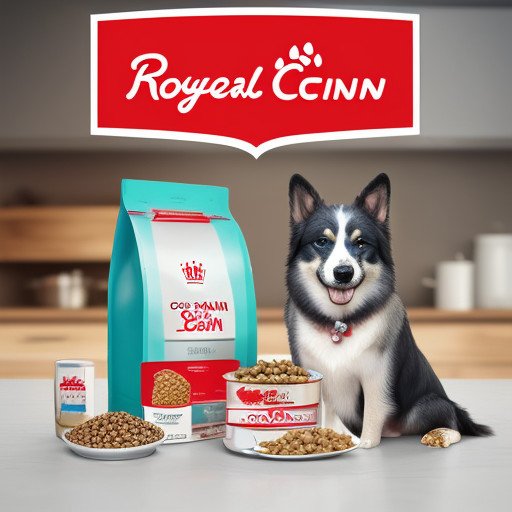
Royal Canin offers breed-specific and size-specific formulas for senior dogs, catering to their unique nutritional needs based on age, size, and breed characteristics.
4. Merrick:
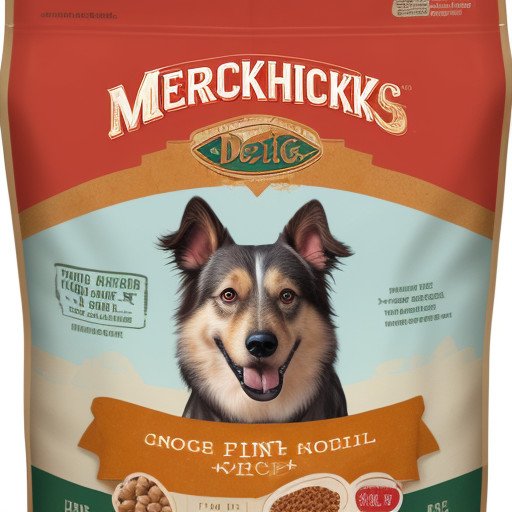
Merrick provides grain-free and limited ingredient options for senior dogs, with recipes featuring real meat as the first ingredient and a focus on natural ingredients and balanced nutrition.
5. Wellness Complete Health:

Wellness Complete Health offers senior dog formulas crafted with premium, natural ingredients, including antioxidants, omega fatty acids, and probiotics to support overall health and vitality.
These brands are renowned for their commitment to quality and nutrition, making them excellent choices for senior dog owners seeking the healthiest options for their furry companions. Remember to consult with your veterinarian to find the best food option tailored to your senior dog’s specific needs and preferences, ensuring they receive the healthiest dog food for senior dogs.
## 6 of 7 ## Transitioning to a New Diet :
Transitioning your senior dog to a new diet requires patience and careful planning to ensure a smooth adjustment. Here are some steps and considerations to help you through the process:
1. Gradual Transition:
Start by mixing small amounts of the new dog food with your senior dog’s current food. Gradually increase the proportion of the new food while decreasing the old food over the course of about a week or longer.
2. Monitor Your Dog’s Response:
Pay close attention to your senior dog’s reaction to the new diet. Watch for signs of digestive upset, such as diarrhea or vomiting, and adjust the transition process accordingly.
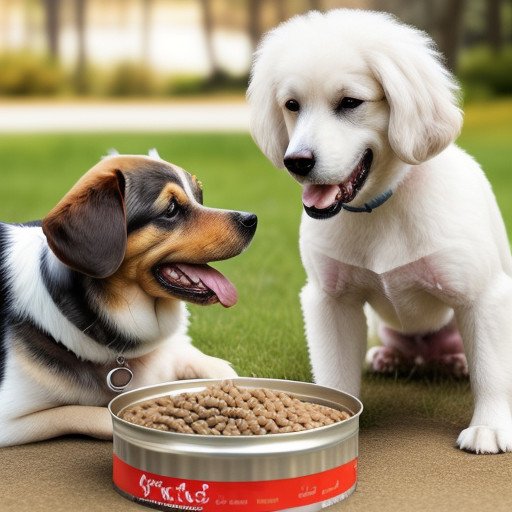
3. Stay Consistent:
Stick to a consistent feeding schedule and portion sizes throughout the transition period. Consistency helps your dog adjust to the new diet more smoothly and reduces the likelihood of digestive issues.
4. Be Patient:
Every dog is different, so be patient and allow your senior dog time to adjust to the new food. Some dogs may take longer to transition than others, and that’s okay.
5. Consult with Your Veterinarian:
If you encounter any difficulties or have concerns during the transition process, don’t hesitate to consult with your veterinarian. They can provide guidance and support to ensure a successful transition to the healthiest dog food for your senior companion.
By following these steps and considerations, you can help your senior dog transition to a new diet with minimal stress and discomfort, setting them up for continued health and vitality in their golden years with the healthiest dog food for senior dogs.
## 7 of 7 ## Consulting with Your Veterinarian :
Consulting with your veterinarian is a crucial step in ensuring your senior dog receives the best possible care, including selecting the healthiest dog food. Here are some important aspects to consider when discussing senior dog nutrition with your vet:

1. Health Assessment:
Your veterinarian will conduct a thorough health assessment of your senior dog to identify any specific health concerns or dietary needs. This may include evaluating their weight, mobility, dental health, and any existing medical conditions.
2. Nutritional Recommendations:
Based on your dog’s health assessment, your veterinarian can provide personalized nutritional recommendations tailored to their individual needs. They may recommend specific types of dog food or ingredients to address your dog’s unique health requirements.
3. Monitoring and Follow-Up:
Your veterinarian will advise you on how to monitor your senior dog’s response to the new diet and schedule follow-up appointments as needed to assess their progress and make any necessary adjustments.
Consulting with your veterinarian ensures that your senior dog’s nutritional needs are met in a way that promotes optimal health and well-being. Together, you and your vet can work as a team to provide the healthiest dog food for senior dogs and the best possible care for your furry companion as they age gracefully.
## Conclusion to What is the healthiest Dog Food for senior dogs ##
As we conclude our exploration of the healthiest dog food for senior dogs, it’s essential to remember the significance of nutrition in our furry companions’ lives. Choosing the right diet can make a remarkable difference in their overall health and well-being as they enter their golden years.

By prioritizing high-quality ingredients, considering their unique dietary needs, and consulting with your veterinarian, you can ensure that your senior dog receives the nutrition they need to thrive. Whether you opt for dry kibble, wet canned food, or homemade recipes, the key is to provide balanced meals that support their aging bodies and promote vitality.
Remember, the healthiest dog food for senior dogs is one that meets their nutritional requirements, supports their specific health concerns, and is palatable for their individual preferences. With careful attention to their diet and regular veterinary care, you can help your senior dog enjoy a fulfilling and active life well into their senior years.
Together, let’s prioritize our senior dogs’ health and happiness by offering them the best nutrition possible. Here’s to many more years of wagging tails, playful moments, and cherished memories with our beloved companions.
Additional Resources and Further Reading :
Exploring additional resources and further reading materials can provide valuable insights into selecting the healthiest dog food for senior dogs . Here are some recommended sources to enhance your understanding

1. American Kennel Club (AKC):
The AKC website offers informative articles and guides on senior dog care, including nutrition tips and recommended dog food brands.
2. Veterinary Nutritionists:
Consultation with a veterinary nutritionist can provide expert advice tailored to your senior dog’s specific needs and health conditions. Your veterinarian can help you find a qualified professional in your area.
3. Dog Food Reviews and Ratings Websites:
Websites like Dog Food Advisor and Consumer Reports provide unbiased reviews and ratings of various dog food brands, helping you make informed decisions about the healthiest options for your senior dog.
4. Books on Senior Dog Care:
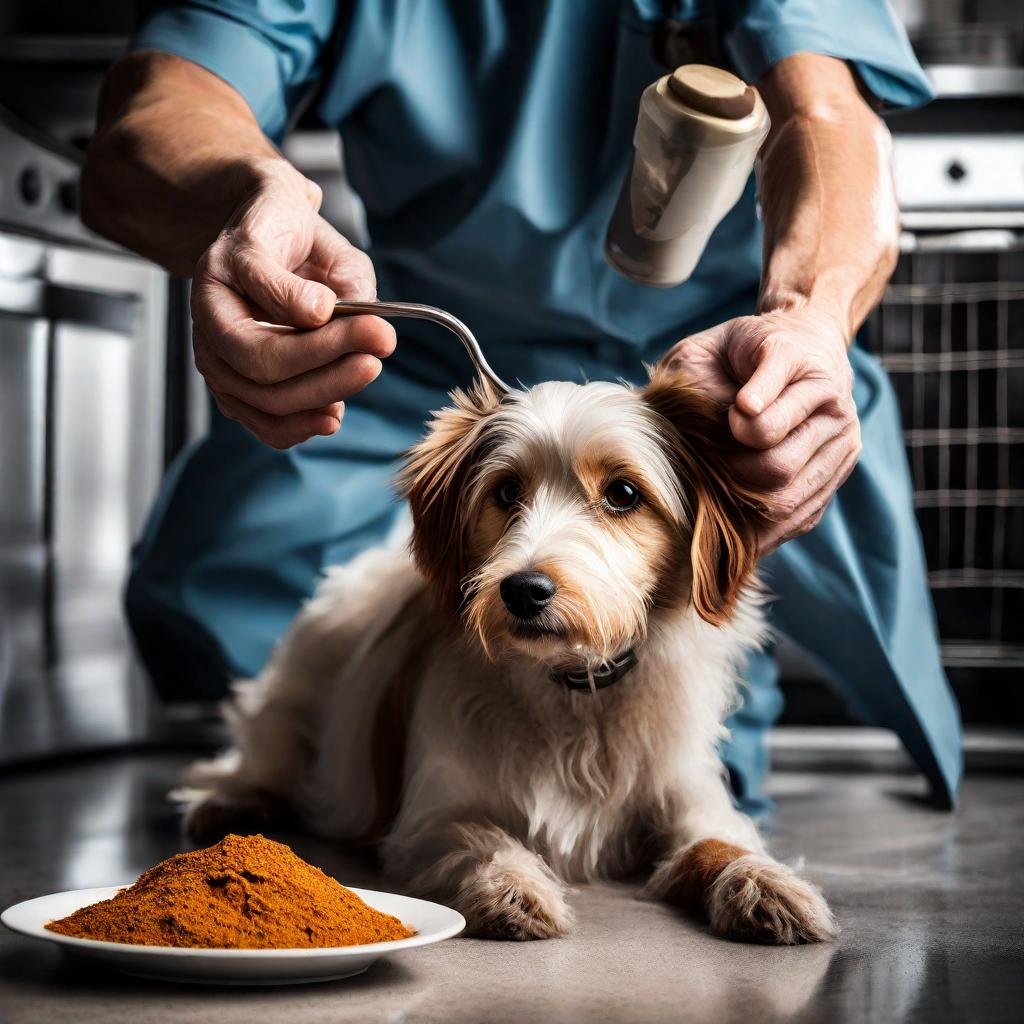
There are many books available that focus on senior dog care and nutrition. Look for titles such as “The Senior Dog Wellness Guide” by Karen Becker and “Your Dog’s Golden Years” by Jennifer Mechanic for comprehensive information on caring for aging dogs.Exploring these resources can empower you to make well-informed decisions about your senior dog’s diet and overall well-being. Remember, the healthiest dog food for senior dogs is one that meets their nutritional needs and supports their individual health requirements as they age gracefully.
You can read this post Healthiest Dog Food
“Top Picks: Unraveling the Best Senior Dog Food for Optimal Health” ## Introduction to healthiest Dog Food for senior dogs ## Welcome to the journey of uncovering the best nutrition for our beloved senior canine companions! As our furry friends enter their golden years, providing them with the healthiest dog food becomes paramount to ensure…
Why is it important to switch to senior dog food?

Senior dog food is formulated to meet the specific nutritional needs of aging dogs, including lower calorie content, joint support, and digestive health. Transitioning to senior dog food helps address these changing needs as dogs age.
Can I continue feeding my senior dog the same food they ate as an adult?
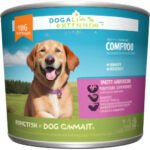
While adult dog food may still be suitable for some senior dogs, it’s essential to evaluate their changing nutritional requirements as they age. Switching to a senior dog food formula tailored to their needs can help support their health and vitality in their golden years.
How can I tell if my senior dog needs a specialized diet?

Signs that your senior dog may benefit from a specialized diet include changes in weight, mobility issues, dental problems, digestive issues, and signs of nutrient deficiencies. Consulting with your veterinarian can help determine if a specialized diet is necessary.
Are homemade diets a good option for senior dogs?
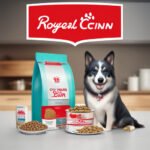
Homemade diets can be a viable option for some senior dogs, but it’s essential to ensure they are nutritionally balanced and meet your dog’s specific needs. Consulting with a veterinary nutritionist can help create a homemade diet that provides optimal nutrition for your senior dog.
What should I do if my senior dog is a picky eater?
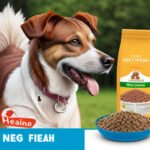
If your senior dog is a picky eater, try offering a variety of high-quality dog foods to find one they enjoy. You can also try mixing in small amounts of wet food or adding warm water to dry kibble to enhance palatability. If picky eating persists, consult with your veterinarian for guidance.
